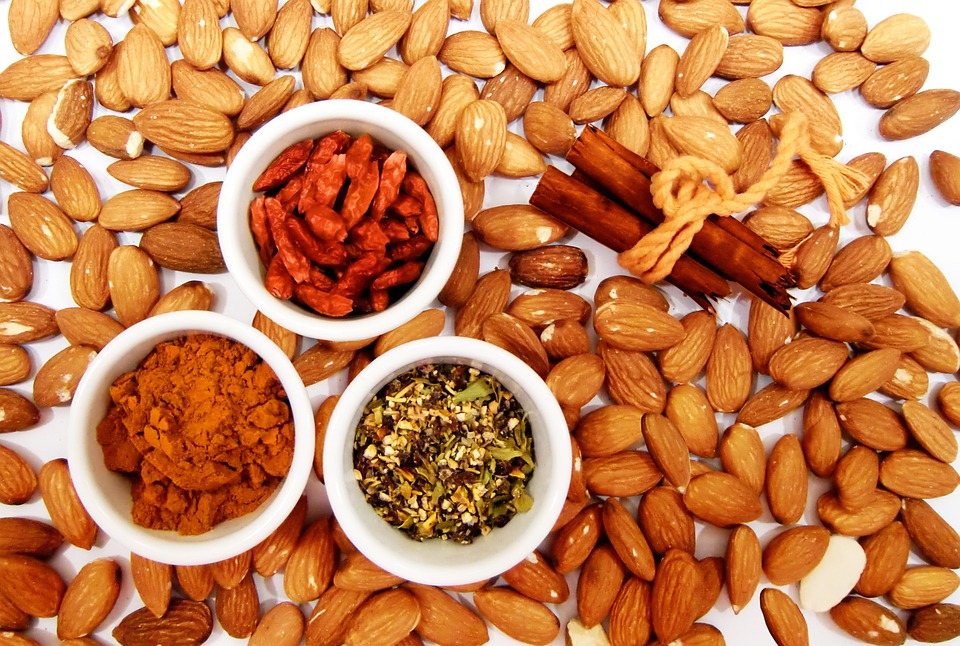
Is Vitamin E Good For Your Nerves?
Vitamin E is essentially an antioxidant that occurs in natural food sources like nuts, seeds and leafy green vegetables and is vital part of our everyday diet. This is mainly a fat-soluble vitamin vital for many significant processes in the body.
Vital For Normal Cell Growth And Function
A potent antioxidant that’s loaded with some absolutely essential nutrients, vitamin E is especially known to erode the damage done by free radicals in our body. This necessary vitamin reduces the oxidative stress in our body, leading to prevention of a wide range of otherwise unavoidable health problems and diseases. Actually Vitamin E is important for normal cell growth and function, and a deficiency of the same could rather lead to neurological symptoms.
Essential for the Central Nervous System
Although this fat-soluble vitamin is recommended for the proper functioning of various organs in our body, it is fundamental for the health and wellness of our central nervous system and the neurological processes associated with it. If our body remains lacking in this particular nutrient, it may hamper the process of nerve regeneration, and consequently upset the usual healing and repair going on in the body.
Significance of Vitamin E in Nerve diseases
In the cases of nerve damage, a sufficient presence of vitamin E helps in the regeneration of damaged nerve tissues. Now, this damage may arise from a variety of sources, such as:
Diabetes: Over a period of time, elevated sugar levels may damage the nerves and blood vessels, even leading up to diabetic neuropathy.
Free radicals: By causing damage to proteins, DNA and cell membranes, free radicals are becoming increasingly responsible for nerve damage, especially in the eyes.
Apart from being a healing agent, Vitamin E also prevents the nerves from undergoing damage in the first place.
Preventive And Curative Support
Since vitamin E is known to fight the free radicals in our body, it is believed to be excellent to ensure that the nerve damage is prevented from happening in the first place. Even in case of people suffering from diabetes, sufficient consumption of vitamin E should be ensured in order to prevent the sugar levels from causing damage. Not only this, being a lipid based nutrient, vitamin E also helps in coating the cell walls with a protective sheath of lipids, thus slowing down the gradual wear-and-tear of the tissues.
How Vitamin E Relieves Muscular Cramps?
The antioxidant effect of vitamin E also works as a strong anti-inflammatory agent and helps to prevent swelling-related symptoms from arising in the first place. It provides relief from stiff and sore muscles, a problem we often face post workout sessions. Here’s the how and the why: When we workout or engage in strenuous physical activities, our body tends to promote the build-up of free radicals by means of metabolism. Excessive free radicals often lead to sore muscles along with an uneasy stiffness, also known as the infamous muscle cramps. Due to the involuntary contractions or spasms in those muscles, cramps are usually followed by a severe ache and inflammation.
How Vitamin Consumption would help?
Vitamin E deficiency can be a common reason for recurring muscle cramps, and it is important to especially ensure sufficient consumption of this particular vitamin. On the other hand, a poor circulation of blood to our muscles may correspondingly make our muscles more susceptible to cramps during the day-to-day activities. This is another capacity where vitamin E appears as a safe and sure remedy. Its presence in our body helps in keeping our blood dilute, and the blood vessels dilated. This, apart from preventing blood clotting, also leads to a thorough circulation of blood to all parts of the body.
Vitamin E In Diet
Being a group of fat soluble compounds such as tocopherols and tocotrienols, Vitamin E can be sourced from a variety of food products as well as supplementary forms. Among the natural sources, there are many types of nuts (almonds), oils (Palm oil), seeds (sunflower seed), fruits (Avocados) and vegetables (Spinach) that are recommended to be consumed on a regular basis.
About the Author:
Dr Sonica Krishan is Author and Speaker in the areas of Healthy and Joyous Living through Ayurveda, Meditation, Yoga and other Contemplative practices. She is a leading Ayurveda Professional in India. She is also Health Writer, Columnist, Editor, Ayurveda Consultant and Holistic Healing Coach. Dr Sonica is open for National as well as International Collaborations with interested people / institutions in fields of Ayurveda, Meditation and Yoga.
Related Posts:
BEST AYURVEDA DIET AND LIFESTYLE TIPS FOR ANTI-AGING
